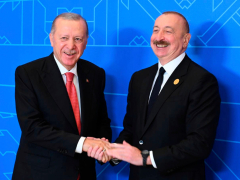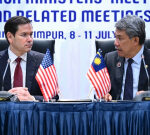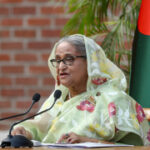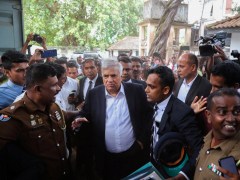Azerbaijan’s defiance after a brutal police raid that victimised its citizens signals a regional revolt against Kremlin control.
The recent flare-up between Russia and Azerbaijan is far more than a diplomatic spat: It marks a potential turning point in the balance of power in the South Caucasus.
On June 27, Russian special forces conducted a violent raid on ethnic Azerbaijanis in Yekaterinburg, an industrial city in Russia’s Ural region. About 50 people were detained, several were reportedly injured, and two Azerbaijani brothers – Ziyaddin and Huseyn Safarov – died in custody under suspicious circumstances. Autopsies revealed blunt-force trauma and broken ribs, contradicting Russian claims that the men died of heart failure. Survivors reported beatings, electrocution, and degrading treatment. Far from being seen as a routine law enforcement action, the operation has been widely interpreted in Baku as a politically motivated act of intimidation – prompting sharp condemnation from Azerbaijani officials and a wave of anger from the public.
On July 1, Azerbaijan’s ambassador to Russia, Rahman Mustafayev, delivered a formal protest to Moscow, denouncing what he described as the unlawful killing and mistreatment of Azerbaijani citizens, including dual nationals. This diplomatic fallout unfolded just as Baku launched its own high-profile crackdown on organised crime – one that notably included the arrest of several Russian nationals, some reportedly linked to Kremlin-funded media outlets and others accused of cyberfraud and drug trafficking. Among those detained were local staff of Sputnik Azerbaijan, the state-run Russian news agency. While the two episodes are officially unrelated, the timing suggests Azerbaijan is signalling a rejection of external coercion and asserting its sovereignty with new intensity.
These developments reflect a deeper geopolitical shift. Russia’s traditional levers of influence in the post-Soviet space – military alliances such as the Collective Security Treaty Organisation (CSTO), energy dependency, and soft power through Russian-language media – are weakening. Strained by the war in Ukraine and international sanctions, the Kremlin has increasingly turned to diaspora policing, symbolic shows of strength, and nationalist rhetoric to maintain control. The Yekaterinburg raid appears to fit this pattern: A demonstration of power aimed at a former Soviet republic now carving out a more independent path.
Azerbaijan’s traditio





